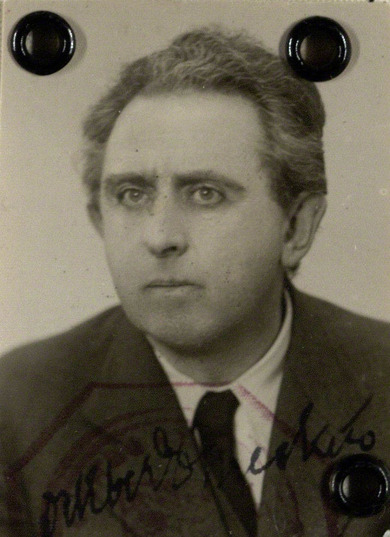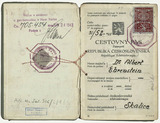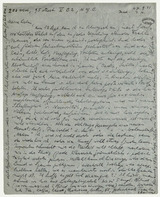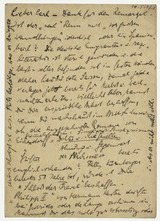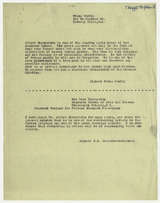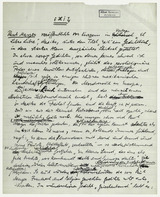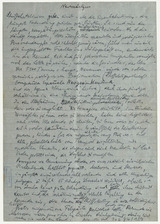Albert Ehrenstein
Albert Ehrenstein
Ich lebe in der Schweiz, habe es aber als Emigrant sehr schwer. Ich habe keine Arbeitserlaubnis und wurde, weil meine antifaschistische Gesinnung nicht unbekannt blieb, und ich schon 1933 die deutsche Schriftstelleremigration zu organisieren versuchte, dreimal aus der Schweiz ausgewiesen.
[I live in Switzerland, but it is difficult as an immigrant. I do not have a work permit. I have been deported from Switzerland three times, because my anti-Fascist attitude is hardly a secret, and because I tried to organize the emigration of German authors already in 1933. (ed.trans)]
Albert Ehrenstein, Brissago, to Max Eastman (editor of the socialist journal The Masses and Liberator), April 30, 1939
| Born | December 23, 1886, Vienna, Austria |
|---|---|
| Died | April 8, 1950, New York, United States |
| Exile | United States of America, Switzerland, Austria |
| Profession | Writer, Poet |
Albert Ehrenstein was a prominent representative of Expressionist literature. His poetry resonated in the time before, during, and after World War I. Ehrenstein’s work was published in highly esteemed journals such as Der Sturm, Die Aktion, and Die Fackel. His pointed style and the biting ridicule of his verses and prose, along with his tendency to polarize, drew both publicity and criticism. His initial collaboration with Aurthur Schnitzler and Karl Kraus led to an ongoing conflict, to which his contribution was not neglible. Ehrenstein helped the actress Elisabeth Bergner at the beginning of her career, and they shared a close bond until his death.
Ehrenstein‘s most famous work is the story Tubutsch, published with 12 drawings from his longtime friend, Oskar Kokoschka. His noteworthy poetry collections include Die weiße Zeit, Der Mensch schreit and Briefe an Gott. Ehrenstein lived primarily in Berlin from before WWI until 1933. After the National Socialists came to power he was forced to emigrate to Switzerland, from which he was expelled for good in 1941. During this time he wrote reviews for the exile journals Die Sammlung and Neue deutsche Blätter. In 1941, Ehrenstein finally emigrated to the USA, where he lived until his death in 1950. In this last phase of exile, he was not able to regain his previous literary notoriety. He died poor and largely forgotten.
Further reading:
Albert Ehrenstein: Werke. Werkausgabe in fünf Bänden, hrsg. von Hanni Mittelmann. In Verbindung mit dem Albert Ehrenstein Archiv Jerusalem. München: Boer Verlag 1989 – 1997, Göttingen: Wallstein Verlag 2004
Uwe Laugwitz: Albert Ehrenstein. Studien zu Leben, Werk und Wirkung. Frankfurt am Main, Bern, New York, Paris: Peter Lang 1987
Armin Wallas: Albert Ehrenstein: Mythenzerstörer und Mythenschöpfer. München: Boer Verlag 1994
Selected works:
Tubutsch (Erzählung, 1911)
Der Selbstmord eines Katers (Erzählungen, 1912)
Die weiße Zeit (Gedichte, 1914)
Briefe an Gott (Gedichte, 1922)
Räuber und Soldaten (Roman frei nach dem Chinesischen, 1927)

